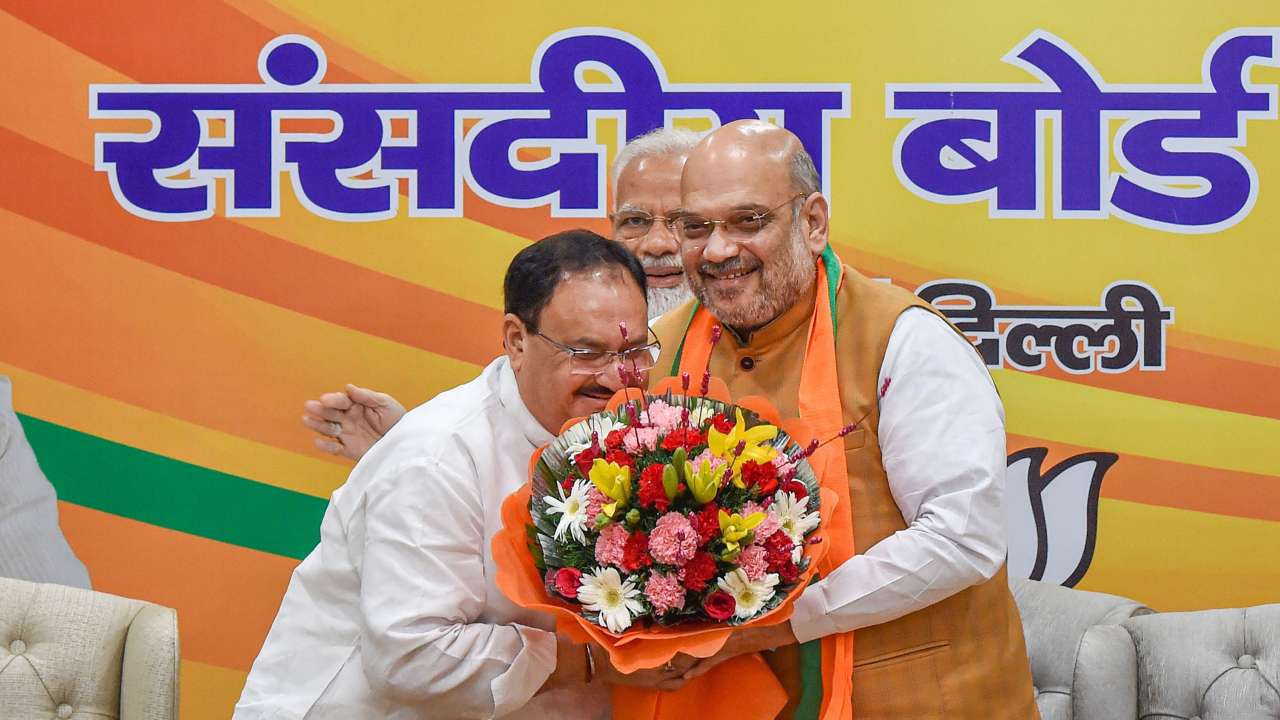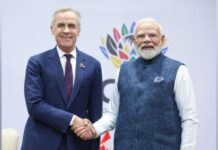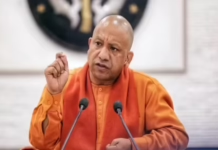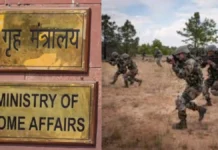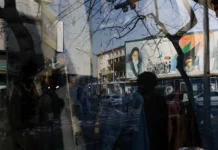NEW DELHI: Former Union minister J P Nadda was appointed BJP’s working president during the party’s parliamentary board meeting on Monday.
The decision of BJP’s highest decision-making body was announced by former party president and Defence Minister Rajnath Singh after the meeting, which was attended by Prime Minister Narendra Modi and chaired by BJP chief Amit Shah.
Shah will remain party’s national president.
“BJP parliamentary board met today and it has selected J P Nadda as the working president. He will remain the working president till the BJP’s membership drive and organisational elections are over,” Singh tweeted.
Congratulating Nadda, Modi tweeted that he “is a diligent ‘karyakarta’ (worker) of the party, who has risen through the ranks due to his hardwork and organisational skills. Humble and affable, he is widely respected across the BJP family”.
Wishing him on being unanimously elected as party’s working president, Shah said he had full faith that under Nadda’s leadership the BJP would be strengthened further and “we would be able to spread the party’s ideology in all corners of the country.”
This is for the first time that the party has appointed a working president even when there is a full-time party president.
Nadda said he will work to strengthen the party as its worker and thanked the prime minister and Shah for reposing faith in him.
In a series of tweets, Nadda said Modi’s guidance has always been inspirational for him and under the prime minister’s leadership the party has got huge support from people of the country.
In a series of tweets, Singh said the the BJP has won several elections under the leadership of Shah.
After the prime minister appointed him the home minister, Shah himself had said that the responsibility of party president should be given to someone else, the defence minister said.
“Congratulations and best wishes to Naddaji for shouldering this new responsibility,” Singh tweeted.
Several Union ministers and BJP leaders also congratulated Nadda on his appointment.
Shah’s tenure ends in December 2019 and he may not like to get an extension as the party has the principal of ‘one man, one post’, sources said.
Nadda, currently BJP’s parliamentary board secretary, will continue as working president till the BJP’s organisational election are over, amid indications that he may succeed Shah.
The 58-year-old was given responsibility of Uttar Pradesh ahead of the Lok Sabha polls in which the BJP bagged 62 out of the 80 seats in the politically-critical state.
A three-time MLA, Nadda represents Himachal Pradesh in the Rajya Sabha and enjoys the confidence of the party’s top brass. He was the health minister in the Modi government in the previous term.
Born in Patna to a Brahmin family from Himachal Pradesh, his father NL Nadda was a vice-chancellor of the Ranchi University. He is a convent-educated politician with his roots in the RSS.
He started his political career as a student leader and was elected as the secretary of the Patna University in the 1977 student elections.
A few years later, he returned to his native state Himachal Pradesh to pursue higher studies and joined a law course in the Himachal Pradesh University.
Under his leadership, the ABVP, which is the student wing of the RSS, defeated the Students Federation of India (SFI) in the university for the first time in 1984. He went on to become the students’ union president.
Later, Nadda also became ABVP national general secretary from 1986 to 1989, and was appointed the president of the Bharatiya Janata Yuva Morcha’s (BJYM), the BJP’s youth wing, in 1991.
Nadda, a low profile leader, was also in contention for party’s top post in 2014, but the BJP’s splendid performance in Uttar Pradesh in the general elections that year resulted in Shah becoming the party chief.
The decision to appoint him came days after the BJP, at a meeting of its national office bearers, decided to carry out a membership drive to increase its members by 20 per cent followed by the party’s organisational polls.
The BJP will start the drive from July 6, birth anniversary of its founder Syama Prasad Mookerjee.
The entire exercise may take several months to be concluded, which means that the party may fight assembly elections in three states — Haryana, Jharkhand and Maharashtra — later this year under Shah and Nadda. PTI

